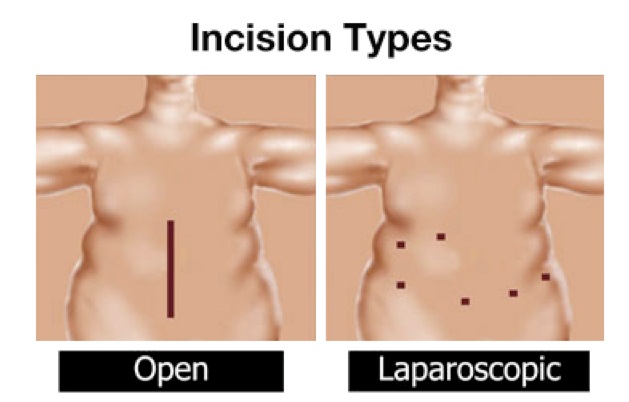Ways for Fighting Obesity in America
Obesity is a national health emergency in the United States.
Surgical weight reduction is one of the ways many Americans are choosing to deal with the battle of the bulge. Because of the high demand for bariatric surgery (gastric bypass and lap-band are two of these procedures), new protocols are being established to help assure the safety and appropriateness of these medical procedures.
Many medical tests are required before a patient is given the go-ahead for this surgery.
Who Can Have Weight Loss Surgery?
The psychologist has become an integral part of the medical team.
Both insurance companies and surgeons require a psychological consultation for each patient they are screening for bariatric surgery. Because eating issues are complicated and the emotional stability of the patient is important, the psychologist helps assess the patient’s readiness for surgery.
For those patients seeking this pre-surgery consultation, you can expect the psychological consultation to address these important areas of mental health:
Details of the patient’s personal history such as family background, education, marital status, home situation, work history, and current living situation.
A complete and detailed history of the patient’s obesity history, from childhood to the present, including any and all efforts the patient has made to lose weight.
In addition, the list would include any history of eating disorders or any issues or problems with weight and eating.
Information from the patient about their exploration of bariatric surgery as an option.
What You Should Know About Weight-Loss Surgery
People who want to get surgical procedure to lose weight have to learn some facts about the surgery and what to expect at the end.
The surgeons have to make sure that patients know what is it all about and know the answers for following questions:
- What patients know about the procedure?
- Do they understand the risks of the surgery?
- Does the patient realize that they will be making life-long changes in their eating?
- Have they thought about the details of the diet, exercise program, and vitamin regimen they will use?
A complete and detailed psychiatric history, including any treatment the patient may have received for psychological problems, current psychotropic medications, and current psychological and/or marriage and family problems.
Having a psychological or emotional problem does not necessarily keep a patient from having the surgery, as long as they are being adequately treated.
This history includes past substance abuse and current alcohol, tobacco, or drug use.
An assessment of the patient’s personality characteristics and emotional resources which indicate that the patient will be compliant with post-surgery instructions and will be able to deal with the trauma of major surgery and subsequent recovery.
- What are the current stressors in the patient’s life?
- What kind of support will the patient have during and after the surgery?
- What are the patient’s expectations and fears?
- Would the patient consider psychological help if they needed it as they go through their weight loss?
Some psychologists may use objective psychological tests to help with the evaluation of a bariatric patient.
Most, however, use their professional skills and training in a clinical interview to make sure the patient is able to understand and make informed choices about his or her health.
The primary focus of the consultation is to assess whether this patient is emotionally stable and psychologically capable of undergoing the surgery.
While it is not possible to predict with absolute certainty that an individual will sail through such a procedure with no emotional complications, the psychologist can provide valuable insights that contribute to the overall assessment of a patient for bariatric surgery.
Questions to Ask While Choosing Weight Loss Surgery
1) Know your procedures
Bariatric surgery has been around for many years. We are blessed medical research moves quickly. Weight loss surgery is no exception. The bad news is many procedures are still being performed unnecessarily and many countries and facilities are not offering the best procedures, they are the old standbys that create the bad rap and publicity that unfortunately haunts this life saving surgery.
2) Know your facilities
Because weight loss surgery is up in the top 5 targeted procedures of medical tourism… Certain designations are awarded to facilities to assure patients of excellent care and standards. Please do not have surgery from a hospital that has not earned the International Center of Excellence (ICE) or more specifically the Bariatric Surgery Center of Excellence (BSCOE). The ASMBS (American Society for Metabolic and Bariatric Surgery) and SRC ( Surgical Review Corporation) has 10 rigorous criteria a hospital must meet to earn this designation. Right here you can eliminate most facilities… this designation is rarely awarded. Please don’t make the assumption here these facilities are more expensive.
3) Know your surgeons
Please note I say surgeons, plural. An October 2013 study published in the New England Journal of Medicine showed how bariatric surgeons were peer reviewed directly related to the surgeons success with patients… lowest complications greatest success of surgery. You can have the same procedure, but very different outcomes at the hands of different surgeons.
4) Know the emergency capabilities of facility
This is yet another area where many facilities can be eliminated, truth is most do not have critical care diagnostics, equipment or a surgical Intensivist… a surgeon specialized in detecting potential emergency situations and there to take command if necessary.
5) If diabetic what are the chances it will put the diabetes into remission
No offence to aesthetics, this rules. Yes some procedures can put Type 2 diabetes into remission if there is significant, sustained weight loss. I implore you to choose a procedure that the procedure itself has a high potential to put diabetes into remission. This is true metabolic surgery that offers far greater health outcome in the present and future.
6) Fat loss vs weight loss
Older procedures such as gastric bypass offered impressive sounding weight loss. However much of that weight is often muscle loss which predisposes patients to many other future illnesses and challenges. You want a procedure that ensures fat loss and cherishes your muscle mass.
7) Is the stomach left in tact?
Again older procedures mangled the stomach. Over the last 15 years we have discovered many previously unknown magical mysteries of the stomach, which are obliterated in older unnecessary procedures such as gastric bypass. Besides horrid nutrient absorption, emotional mood disorders including alcoholism are associated with these procedures.
8) Are there any “foreign objects” left in the body?
Your body is equipped with incredible sensors to detect and attack foreign objects such as gastric bands, staples… keep the stomach in tact and don’t allow any clutter to be left in there!!!
9) What are the complication rates?
Not just of the procedure but of the particular surgeon, facility as well. Remember stats class? Numbers are fun, but can be dangerous. Marketing pros and PR folks can seriously fool you here. Get the straight answer on numbers of success and complications for surgeon, procedure performed at that facility, and other procedures performed there. Be real careful here.
10) Do they insist on a certain amount of weight loss before procedure?
Yes you are there for weight loss surgery, however it is for your utmost protection that a certain amount of fat be lost before surgery for the liver. A good facility will guide you through this, and help you out if there is a problem
11) What pre operative and post operative support do they offer?
It shouldn’t be take the money and run… this should be a relationship of trust that is built between you and the surgical staff. You are not on a factory conveyor belt. It is inexcusable a full pre and post nutritional, physical activity and lifestyle support program is not implemented with you.
12) What “promises” are they making you?
Any great hospital will tell you weight loss surgery is NOT a get out of jail for free card. The realities of the procedure and future lifestyle should be dealt with, openly and honestly. Weight loss surgery is a tool for success, not a magic lantern.
13) How accessible is the staff after the procedure?
What systems do they have in place for you for questions, cheering you on? Don’t settle for a FAQ sheet, you deserve human contact.
14) Quality of life post surgery
Again this is a point that truly saddens me. The older procedures put limitations and encumbrances on the future joy of life that are just not necessary any more. Really truly take a good look at this scientifically, life is to be enjoyed, and. Who are we kidding, we all have an inner foodie.
15) Are you willing to travel?
The newest, safest most effective procedures are offered in few places. The best surgeons… are you willing to travel… medical tourism is NOT popular just for cost savings – it is also the very best way to receive the state of the art care and facilities, cost effective and in a timely manner
Understand from all of these that it is inaccurate to judge a particular procedure when offered by different facilities – they will have different outcomes to many of these questions.
It is very intimidating to make a decision on weight loss surgery, especially given all the “bad stories” that make it into the papers.







